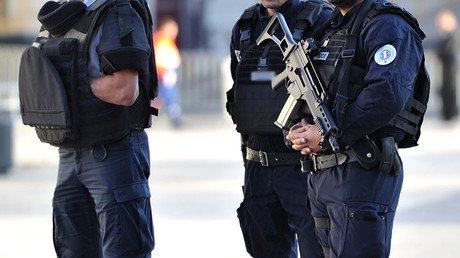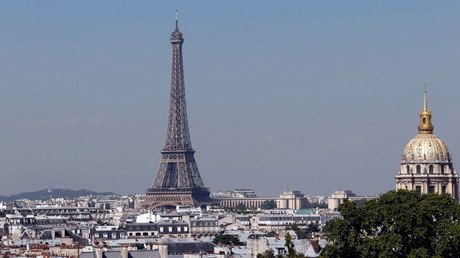'We’ve become more conscious of danger': Fears for security in France 1 year after Paris attacks
One year since the devastating terrorist attacks on Paris left 130 people dead, many French people are still reeling from the loss. But has constant fear now become a new reality in France? RT went to Paris find out.
As it happened: TIMELINE of the Paris attacks
Paris mourns its victims today, a year on since the horrific attacks that showed the French they are part of a much bigger world than most Europeans felt comfortable admitting.
#Paris#Nov13 in memory of the victims of #terrorism. #Bataclan#ParisAttackspic.twitter.com/zsWM43abn6
— Federico Di Leo (@Fe_DiLeo) 13 ноября 2016 г.
French President Francois Hollande has unveiled memorial plaques on Sunday in several locations, including the suburb of Saint-Denis – the location of the first attack, as well as three bars and the Bataclan concert venue.
A year ago, on November 13, the band Eagles of Death Metal were playing a gig at the Bataclan Theater when it was suddenly interrupted by men with guns. The attackers mowed down 90 people as the victims ran for their lives.
This Sunday, flowers, candles, and photographs adorn the entrance to the venue, as family, friends, and witnesses to the horror pay their respects.
“I’d rather not talk about it, I have a lot of pain,” an elderly man says.
“I lost one of my friends here – a very good friend. He died that night. He was in there,” another man at the entrance to Bataclan told RT.
Denys Plaud, a survivor who lived through the tragedy, says “It was a horror scene. It is clear that things are different before and after November 13, it changed things. It was a situation that people hadn’t experienced before. We’ve all been affected.”
This is not just about the trauma of loss for the French, lawyer Samia Maktouf, who represents 24 of the families affected by the events of November 13, remarked to RT – a sense of a naivety has been snatched away from the French public.
#Paris is preparing to commemorate the 1 year anniversary of #Nov13#terror attacks, as country remains in a state of emergency. pic.twitter.com/sEGWAjP0x6
— Anastasia Churkina (@NastiaChurkina) 12 ноября 2016 г.
“I don’t think that we feel more secure today, because the most important thing is we still have many questions without any answer,” Maktouf says.
“The only job of a proper French intelligence outfit should be to detect these 10-20 future human bombs in the middle of those 10,000 radicalized people, and find them before they act,” terrorism expert and professor of criminology Xavier Raufer says. “To this day, this is a total failure. We could be hit any time.”
READ MORE: French Police say lawless ‘no-go’ areas exist, challenge PM Valls who says they don’t
It took Islamic State (IS, formerly ISIS/ISIL) terrorists less than 24 hours to claim responsibility for the November 13 attacks, and while attacks in Europe were already becoming more commonplace, the reality that something of this scale could happen so close to home was just beginning to dawn on the French. Add to this the attack on Charlie Hebdo, another one in Nice, and the numerous times IS has called on its supporters to attacks – in May, June, September, and November in 2016 alone, and the countless times the year before that.
“The world has changed for us, that’s for sure. We’ve become more conscious of danger. More attentive in terms of what might happen around us, more vigilant,” a woman laying flowers at the Bataclan says. “I understand it’s complicated. But we could be doing more to address these issues.”
Another person told RT the French “do not feel secure at all.”
A year on since the November 13 attacks, the state of emergency is still not being lifted.
“It is difficult today to end the state of emergency,” Prime Minister Manuel Valls told BBC’s Hardtalk. “Especially since we are going to begin a presidential campaign in a few weeks with meetings, with public gatherings. So we must also protect our democracy.”
In #Paris, vigils in memory of 130 killed during last year's attack continue, balloons released during minute of silence pic.twitter.com/H7FE5evAKF
— Anastasia Churkina (@NastiaChurkina) 13 ноября 2016 г.
Initially, the state of emergency was introduced by Hollande immediately following the Paris attacks on November 13, 2015.
France likely to extend state of emergency to ‘protect democracy’ during elections – PM
After the horrific attack in Nice this summer, which left 84 people dead, the National Assembly extended the state of emergency for another six months until the end of January 2017. However, with the ongoing threat of terrorism, nobody sees any reason to remove emergency laws until the elections, set to take place April-May.














